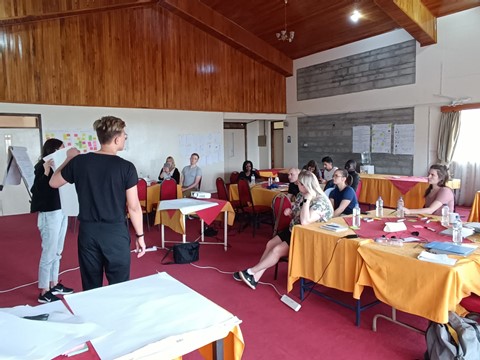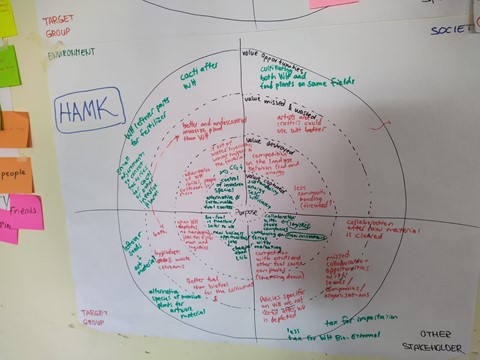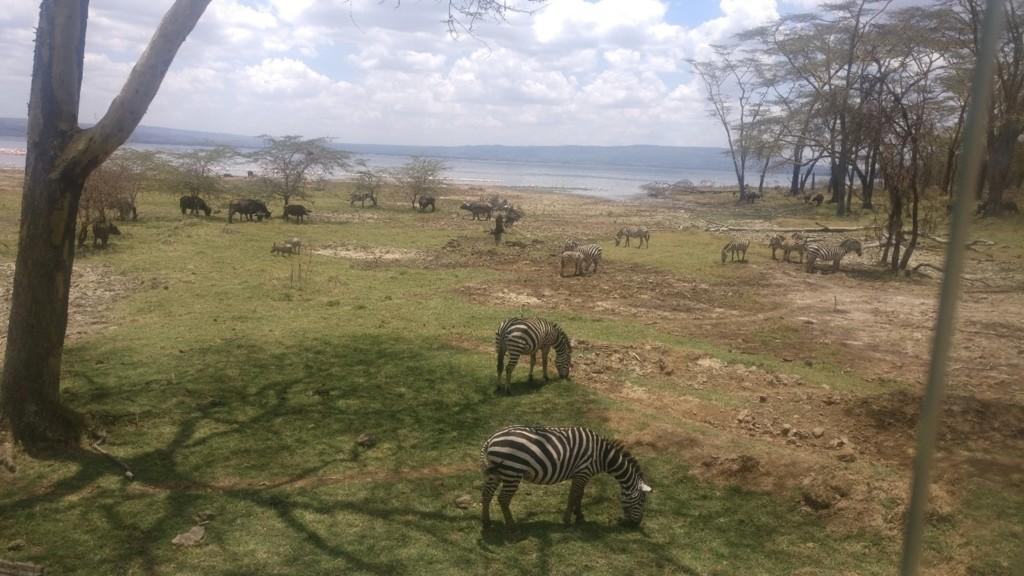Our course started at the end of January and now in May, it´s coming to an end and we can reflect on the whole journey. It was a collaboration between three universities: HAMK, Aalto and Egerton. We started our journey through workshops in Zoom and it concluded into a trip to Kenya from where we returned with great memories. Now it´s time to put the finishing touches on the project and thank our friends and collaborators along the way.
PBL – Problem-based learning
In the beginning of the course, we were presented with the main idea of the project by Egerton University: promoting the use of bioethanol in Kenya by using water hyacinth. From here, our team needed to figure out our role in this, what would we focus on, and we decided on the angle of the producer. We had three workshops in total, where all three university´s students met and worked together. In these, we always had an ice-breaker in the beginning, a little game to loosen up the mood, and we did tasks, that would help us with the project. To help us understand what we need to do and plan our trip to Kenya.
Then came the day when we travelled to Kenya, which we did with enthusiasm and excitement. There, our days were filled with many exercises, which helped us broaden our minds about the topic. The exercises were done in mixed teams and, as before, we started the days with an ice-breaker. Our whole team consisted of many nationalities, cultures and disciplines and this gave us and the whole project a mixture of different perspectives, know-how and local knowledge.

We had our field trip to Kisumu and Lake Victoria, where we visited CIST, local entrepreneurs and had a nice boat trip in Lake Victoria. We got to see the premises of a bioethanol factory and got more insight on the production. We also got to see the amazing handmade crafts the locals do of water hyacinth like paper and outdoor furniture.
The project entailed a lot and along the way, we learned many things, f.e. about teamwork, different cultures, innovative thinking and bioethanol production. A process of Teams-meetings with our own group, to workshops with all the students and to the icing of the cake: the trip to Kenya. It was in Kenya where we learned how things are done and why and how it benefits the locals.

Is there life after AgriSCALE?
After coming back home from Kenya and getting adjusted back to everyday life in Finland, the team still has work to do before the AgriSCALE project comes to and end for us. We will summarize our findings into different outputs and deliverables. We will be providing short video assets that showcase the benefits of producing bioethanol cooking fuel from water hyacinth. We will also be delivering a project report and a presentation about the project.
It’s quite difficult to summarize the experience we had into a report, or a final presentation. The PBL-methods, the workshops and teamwork helped us look at the issue of water hyacinth on Lake Victoria with a much wider lens. It was a unique experience, to be able to learn about a topic with local people right there, on their home turf. It is a whole different ball game to hear from the local people and get their wide perspective on the issue. To have a topic that seemed pretty straightforward when discussed from the comfort of our Teams-meetings, turned into this vibrant and complex dilemma with multiple potential outcomes and solutions.

It was also interesting to learn about the local bioethanol production and get to meet the innovative founder of CIST Africa: Richard Arwa. It’s easier and more meaningful to produce a video to a company, that we had a chance to visit. We hope our contribution will be of use to CIST Africa. Maybe our videos could help them present their product to more potential investors and help gather more funding to scale up the production.
It is nice to finish the report and deliver the videos to CIST Africa, but one of the best outputs this project has given us must be the human interaction and connections we’ve made. We will remember the lessons, kindness and laughs we experienced with the Egerton University students, Aalto students and our mentors.
We are deeply grateful for our Kenyan hosts for inviting us to experience their country and culture, and embracing us with open arms every step of the way.
Asante sana!
Authors
Pirita Pykäläinen % Suvi Lähteenmäki
Team Kenya
